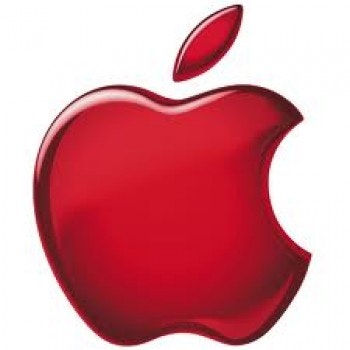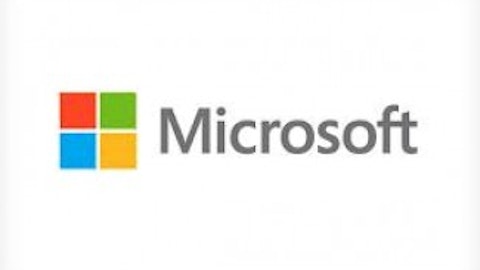With Apple Inc. (NASDAQ:AAPL) shares headed downhill, and rapidly, investors need to look more closely at one of Apple Inc. (NASDAQ:AAPL)’s major cash cows. Apple’s App Store generated $3.5 billion in high-margin revenue last quarter. But Apple Inc. (NASDAQ:AAPL) shareholders need to understand how this cash cow’s health dovetails with the interests of the developers who fuel it, as well as the competitive threats it faces in light of Android’s current marketshare dominance.
I enlisted my tech-savvy son Watson to get me an interview with his friends at San Diego-based Network Anomaly LLC, creator of the iPhone app Relay Stuff. This will be a two-part series, with Part 1 offering insights on why the App Store has been such a big hit and, despite the rise of Android, still remains developers’ No. 1 destination.
The Interview
Me: I understand you developed your app only for Apple Inc. (NASDAQ:AAPL)? Why?
Relay: We felt that developing for Apple Inc. (NASDAQ:AAPL) had some real advantages, a significant one being a higher level of user engagement. In our research, we found surveys noting the average iPhone user has 40 to 80 apps installed, whereas the Android side tended to be significantly less. For a new app, the willingness of users to try things is a definite incentive. On top of that, the user retention was quite a bit higher as well, which translates to lower user acquisition costs. These are particularly critical for us as a start-up where every dollar counts.
Me: This despite Google Inc (NASDAQ:GOOG)’s growing market share with their Android software?
Relay: The choice of which OS (operating system) to support first is something that app developers are finding to be an increasingly difficult question. There’s no denying that Android holds the top spot in market share and continues to gain. A Android’s licensing model is great for consumers, giving them lots of options; but that creates a big issue for developers is with the diversity of hardware and software combos out there. That really impacts the time and effort required for testing. As most developers are small companies like our own, you have to choose carefully where to employ your resources. The market share differences didn’t yet translate to a compelling reason to go for Android as the initial entry for us.
Me: What does your app do, by the way?
Relay:
Relay is designed to make it easier for people to give and get things that still have life left in them. Most people want to avoid tossing stuff in the trash if they believe it still has utility or use left in it. Donating is great, but we believe that people would rather give something to someone they know and be able to see how that person derives benefit from it. The challenge is knowing what one person has to offer and knowing what another can use. That’s where we come in.
Me: Sort of a mobile app Craigslist?
Relay: Something like that, but tied into social media via Facebook, so you’re focusing on people you’re connected to or with whom you share common interests. We’ve added a reward component for use of the service, giving people additional benefits aside from the core giving and getting functions.
Me: Why else might a developer choose to develop for Apple over Android?
Relay: Apple has the advantage of a consolidated market location in its App Store; they have a vertically integrated ecosystem. Android [app] markets are many, and getting in all of them adds overhead for the developer. Fortunately for Android, a few key marketplaces like Google Play, Amazon.com, Inc. (NASDAQ:AMZN), and Facebook Inc (NASDAQ:FB), are likely to dominate, but it’s still additional work.
Me: Most cell phone users have the perception that apps made for the iPhone and iOS are of higher quality than that of Android. Is there truth to this? Did this effect your decision to produce first for Apple?
Relay: First of all, and at the risk of upsetting a few folks, the perception is generally accurate: Apple has better quality controls as compared to Android, whose marketplaces vary and result in many questionable products being made available. However, as a developer, Apple’s quality controls can be a double-edged sword, simply because you can be approved for the Android platform almost instantly in some cases, but Apple’s more thorough check to ensure some level of quality can make the process seem daunting for new developers. In online forums, we saw that some developers expressed concerns over how opaque and sometimes lengthy the approval process can be. Apple should provide more visibility into this to placate concerns.
Me: What was your submission process like?
Relay: Looking back, I think we felt like the initial App Store submission was a bigger hurdle than it turned out to be. We’ve had some bumps in the process, but we’ve managed. We found the best way to understand it is to just do it. It really isn’t as big of a deal as it might initially seem.
Me: Do you believe that having the best app store gives Apple a competitive advantage?
Relay: Absolutely. The more apps, the higher the user engagement, the less likely current customers are to switch platforms. The more value you offer developers, whether it be what we perceive to be the better or more affluent customers Apple has, better support for developers, or the larger potential customer base (where Android has the advantage) the more we’ll develop for you. The intense competition of course leads to a better user experience.
Me: Now that Research In Motion Ltd (NASDAQ:BBRY) has released its new phone, do you have plans to develop for them?
Relay: Honestly, if we developed for any platform besides Apple it would be Android and then maybe Microsoft Corporation (NASDAQ:MSFT). Blackberry just doesn’t have the user base at the moment, nor do I foresee the Z-10 (Blackberry’s new phone) being a huge game changer. Too little, too late in my view, but I could be wrong. However, more competition keeps everyone on their toes.
Coming up
Thanks to the guys at Network Anomaly for taking the time to really explain to me (and therefore hopefully all readers) the ins and outs of the App Store. Tomorrow, we will examine a potential pitfall to the huge revenue Apple derives from its App Store. If any of you have a thought, a comment, or a question, feel free to post it below.
The article What Makes Apple’s App Store No. 1? originally appeared on Fool.com and is written by Margie Nemcick-Cruz.
Copyright © 1995 – 2013 The Motley Fool, LLC. All rights reserved. The Motley Fool has a disclosure policy.






